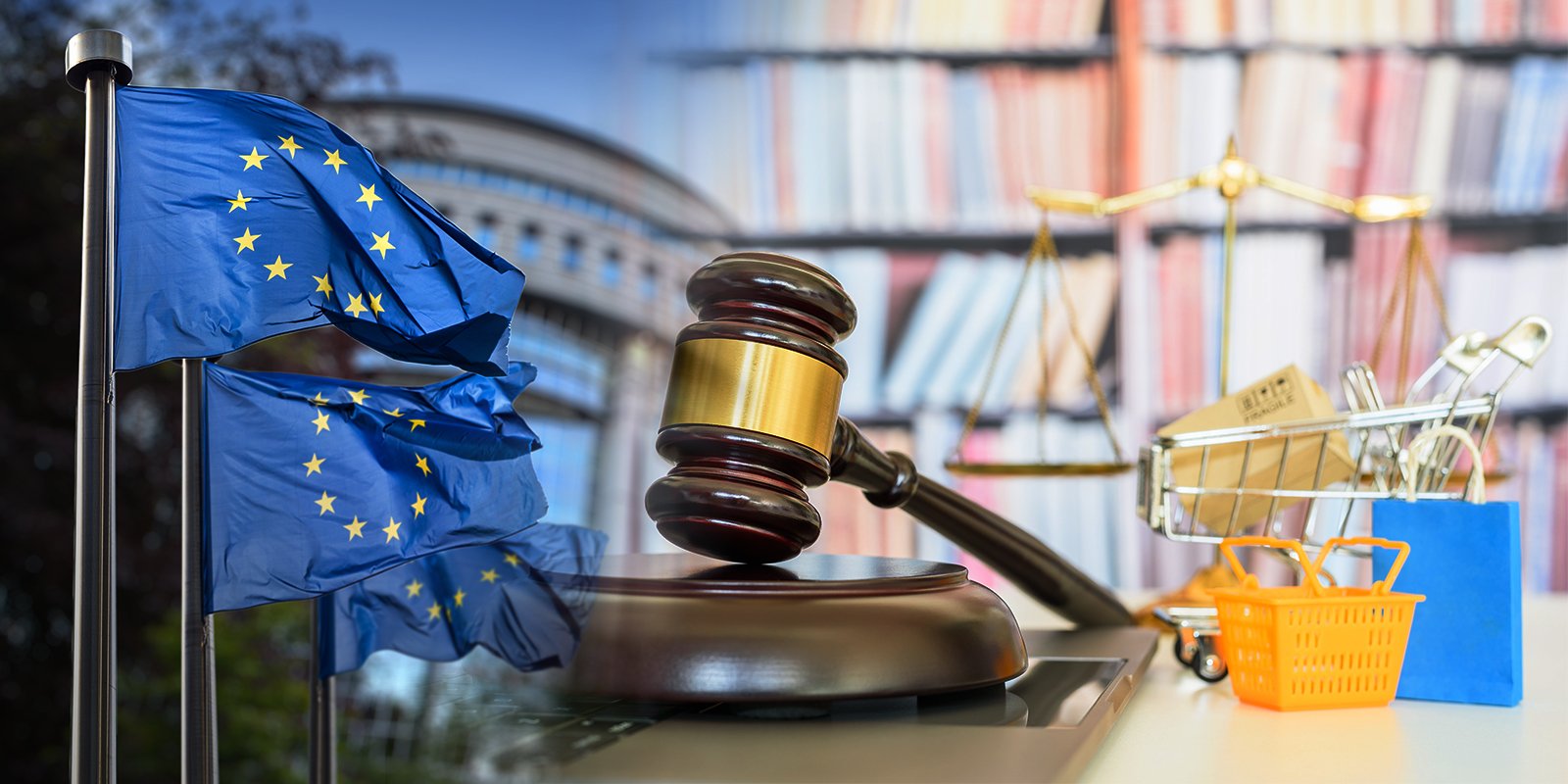
Reversal of Burden of Proof Under Proposal for a New EU Product Liability Directive
In Short
The Situation: The EU Product Liability Directive 85/374/EEC ("PLD") was adopted nearly 40 years ago and has remained almost unchanged since its inception.
The Result: The currently pending revision of the PLD is aimed at correcting perceived shortcomings and modernizing the regime.
Looking Ahead: The most disputed aspect of the new PLD is the proposed regime of the burden of proof, which, if adopted, would usher in a new era in EU consumer protection law.
The European Commission (the "Commission") adopted the Proposal for the revision of the PLD (the "Proposal") in September 2022. The co-legislators—the Council of the European Union (the "Council") and the European Parliament—have already individually agreed their respective positions and are currently negotiating the final text of the PLD within the so-called "trilogue."
The Proposal changes the PLD by expanding its scope in several dimensions, e.g., regarding the types of products and damages covered and the economic operators that can be held liable for defective products (under Articles 7 and 4(16) of the Proposal: (component) manufacturers, importers, authorized representatives, distributors, online platforms, and fulfilment service providers).
A key revision concerns the burden of proof.
Pursuant to Article 4 of the current PLD, "the injured person shall be required to prove the damage, the defect and the(ir) causal relationship" for the manufacturer to be held liable. While the Proposal reiterates this general principle at its Article 9(1), where it states that "Member States shall ensure that a claimant is required to prove the defectiveness of the product, the damage suffered and the causal link between the defectiveness and the damage," the Proposal contains a set of rebuttable presumptions that basically shift the burden of proof to the defendant in a number of circumstances.
Legal Presumptions
Indeed, Article 9(2) of the Proposal sets a presumption of defectiveness where:
- The defendant has failed to comply with a court order to disclose "relevant evidence";
- The claimant establishes that the product does not comply with mandatory safety requirements established at EU or national level, or any such requirements that are aimed at protecting against the risk of damage that has occurred; or
- The claimant establishes that the damage was caused by an obvious malfunction of the product during normal use or circumstances.
The first scenario refers to Article 8 of the Proposal, according to which, if an injured person claiming compensation for damages caused by a defective product presents "facts and evidence sufficient to support the plausibility of the claim for compensation" (emphasis added), national courts will—pursuant to the Council's current position—be empowered to order a defendant to disclose "relevant evidence that is at its disposal." The fact that the Proposal is not specific as to how the notion of "relevant" should be interpreted opens the door to multiple subjective—and diverging—interpretations.
What's more, the Commission had initially proposed that such a disclosure be limited to what is "necessary" and "proportionate" to support a claim and that disclosure should be balanced against the protection of confidential information and trade secrets. However, the European Parliament has proposed to exclude confidential information from these conditions. This could have significant adverse consequences for industry.
The second scenario, which pertains to noncompliance with mandatory safety requirements, could pose significant challenges for a wide number of industries like the medical sector, encompassing both medical devices and pharmaceuticals, where producers must comply with very extensive and complex safety requirements, such as for example pharmacovigilance. Under the Proposal, a minor infringement of such requirements would suffice to trigger the presumption of defectiveness of an affected product even if this minor infringement would have basically no influence whatsoever on the actual safety of the product.
Another important case where the Proposal establishes a presumption that is detrimental to the industry is where a court finds that the claimant faces "excessive difficulties" (due to "technical or scientific complexity") to prove either the defectiveness of a product, or the causal link between a product's defectiveness and the damage, or both. In such scenario, the defectiveness of the product or the causal link, or both, can be presumed where the claimant has demonstrated that it is "likely" that either: (i) the product was defective or that its defectiveness is a likely cause of the damage, or both, or (ii) that the product contributed to the damage.
The Commission had originally intended the "excessive difficulties" to be limited to situations where a claimant would be able to demonstrate these on the basis of "sufficiently relevant evidence." However, as explained above, the concept of "relevant" evidence is undefined and opens the door to legal uncertainty and a patchwork of diverging interpretations. But what's more, the co-legislators are now suggesting to remove—or anyway water down—these limitations. The Parliament is even proposing to amend the word "likely" with "possible," which would basically amount to reversing the burden of proof to the producer in all cases except those where it would be impossible that the product was defective or that it contributed to the damage.
A causal link between defect and damage would furthermore be presumed under the Proposal where it has been established that the damage caused is of a kind typically consistent with the defect in question (Article 9(3) of the Proposal).
Defendants are entitled to rebut these presumptions pursuant to Article 9(5) of the Proposal. However, considering their number and wide scope, these presumptions constitute a severe deviation from the general rule according to which a plaintiff should prove his/her claim.
Industry Reactions
A wide range of businesses have raised significant concerns with the proposed changes to the PLD, including the largest business organization in Europe—BusinessEurope—as well as the American Chamber of Commerce to the European Union, which represents the largest outside investors in the EU economy. This is in addition to sectoral industry organizations covering consumer appliances, financial services, medical devices, pharmaceuticals, engineering, electronics, ICT and metal technologies, and many more. These industry statements highlight what could be a dramatic change in the European legal landscape and a material concern for companies doing business in Europe and their investors.
Next Steps
It is expected that negotiations between the co-legislators could be wrapped up as early as the end of 2023 or early 2024. It is currently proposed that Member States would have 12 months to implement the new rules, which would then become fully effective and in force throughout the European Union.
Conclusion
The Proposal in its current version reduces the evidentiary threshold to be met by a plaintiff in a wide array of circumstances by creating presumption of defectiveness of a product and/or causality with the alleged damage even if the plaintiff can just demonstrate their likelihood. It also imposes potentially wide-ranging disclosure obligations for a defendant where a plaintiff can show mere plausibility of the claim.
As such, the Proposal, and even more so the amendments currently proposed by the co-legislators, would result in significantly modifying the evidentiary regime currently found in the PLD. This dramatic change, coupled with significant exposure under the new rules on class actions in Europe (see Jones Day White Paper, "The Rise of US-Style Class Actions in the UK and Europe," October 2023), would increasingly expose manufacturers and importers active in the European Union to significant litigation risks, including frivolous and vexatious litigation simply aimed at obtaining "blackmail settlements." This would also add significant costs (insurance, settlements, etc.) to businesses offering their products in Europe (and such costs would be inevitably shifted onto consumers). This could ultimately result in a reduction in the development and offering of innovative products in Europe for fear that they could be associated with higher litigation risks. This would not be in the interest of those very consumers that the Proposal claims to defend.
The Proposal sets out (in its explanatory memorandum under "Regulatory Fitness and Simplification") that it will not create new administrative costs for businesses. Business reactions do not appear to support this view, and the Proposal may therefore not strike "a careful balance between the interests of industry and consumers" as it claims.
Five Key Takeaways
- New rules for product liability are being rushed through by the European Union.
- Dramatic changes are foreseen in European litigation rules.
- Plaintiffs in the future could have European courts order disclosure of evidence on the basis of a claim being "plausible."
- In certain circumstances, plaintiffs, for example, will not need to prove a defect but instead be able to rely on a presumption, where a plaintiff will only need to show that a defect was "likely."
- Businesses are expressing increasingly grave concerns with these potential changes.







